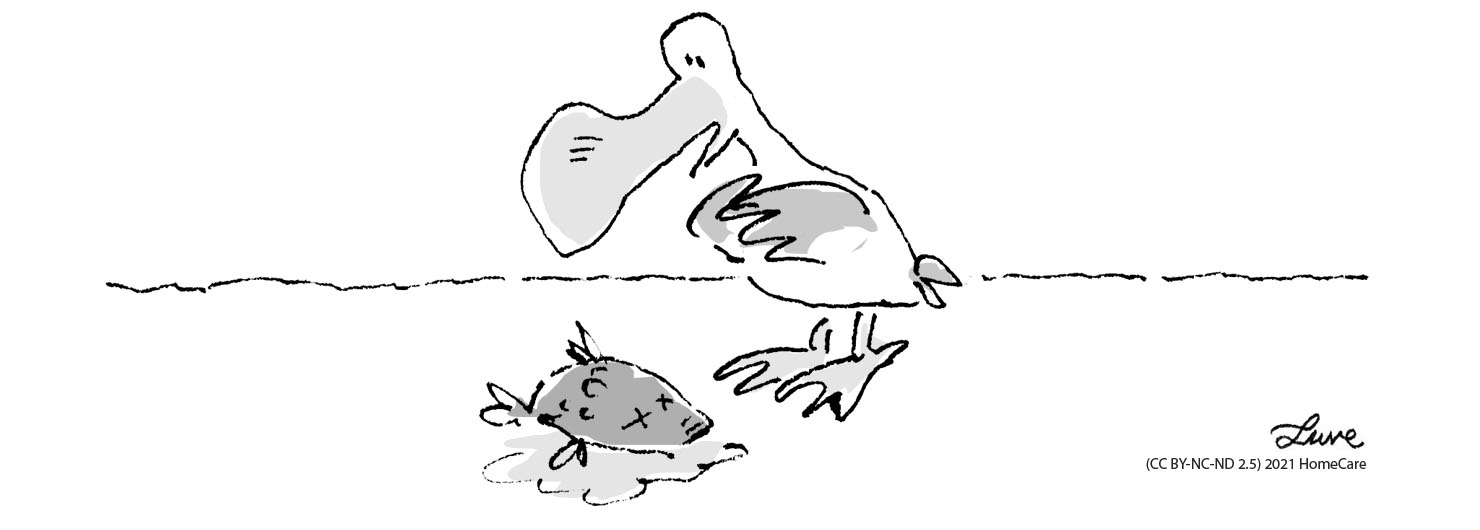
“Gak! There’s something fishy with my diet!”
Diseases of the digestive tract in the elderly are associated with the physiological aging process of the organism and with pathological changes. Aging affects all functions of the digestive system: motor skills, secretion of enzymes and hormones, digestion and absorption.
In addition, the digestive system plays a key role in the absorption and metabolism of medicines that are often consumed in large amounts by the elderly and have digestive side effects.
Some age-related digestive diseases are more common in the elderly and may require appropriate behaviour in the diet of the elderly.
Gastroesophageal reflux disease
Gastroesophageal reflux disease (GERD) occurs when stomach acid frequently flows back into the tube connecting your mouth and stomach (oesophagus). This backwash (acid reflux) can irritate the lining of your oesophagus.
Common signs and symptoms of GERD include:
![]() A burning sensation in your chest (heartburn), usually after eating, which might be worse at night
A burning sensation in your chest (heartburn), usually after eating, which might be worse at night
![]() Chest pain
Chest pain
![]() Difficulty swallowing
Difficulty swallowing
![]() Regurgitation of food or sour liquid
Regurgitation of food or sour liquid
![]() Sensation of a lump in your throat
Sensation of a lump in your throat
In the elderly, GERD can be caused by, among other things, decreased saliva production, oesophageal motility disorders (associated with comorbidities such as Parkinson’s disease, type 2 diabetes, respiratory and cardiovascular diseases), and medicines using.
Dietary modification may be a form of acid reflux treatment that will reduce the severity and / or frequency of symptoms.
Recommended dietary changes:
![]() Eating 5-6 small-volume meals regularly during the day
Eating 5-6 small-volume meals regularly during the day
![]() Eating food slowly, in a calm atmosphere (prevents swallowing air)
Eating food slowly, in a calm atmosphere (prevents swallowing air)
![]() Chewing food carefully – it facilitates the digestion process, reduces gastric contractility (in a person with dental problems –lack of teeth, dentures – it is advisable to grind food)
Chewing food carefully – it facilitates the digestion process, reduces gastric contractility (in a person with dental problems –lack of teeth, dentures – it is advisable to grind food)
![]() Eating the last meal 3 hours before going to bed, because the lying position makes it difficult to clear the oesophagus from the gastrointestinal content
Eating the last meal 3 hours before going to bed, because the lying position makes it difficult to clear the oesophagus from the gastrointestinal content
![]() Avoiding excessive drinking with meals as this increases the amount of gastrointestinal content in the stomach
Avoiding excessive drinking with meals as this increases the amount of gastrointestinal content in the stomach
![]() Applying an elimination diet – exclusion of products that cause ailments (e.g. citrus fruits, spicy spices, coffee, carbonated drinks, chocolate, cocoa and chocolate products, onion vegetables, fried products, fatty meats, cheese.
Applying an elimination diet – exclusion of products that cause ailments (e.g. citrus fruits, spicy spices, coffee, carbonated drinks, chocolate, cocoa and chocolate products, onion vegetables, fried products, fatty meats, cheese.
Back Next
![]()
Nutrition for the elderly:63% complete
